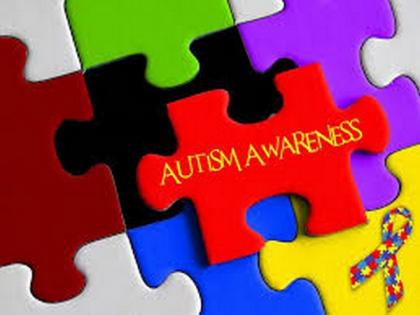One-fourth of autistic cases in children are not diagnosed
By ANI | Published: January 10, 2020 12:40 PM2020-01-10T12:40:48+5:302020-01-10T13:00:03+5:30
One-fifth of the children under eight years of age with autism spectrum disorders, predominantly Black and Hispc are not treated.

One-fourth of autistic cases in children are not diagnosed
One-fifth of the children under eight years of age with autism spectrum disorders, predominantly Black and Hispc are not treated.
The study was published in the Autism Research journal.
Walter Zahorodny, who is an associate professor at Rutgers New Jersey Medical School and Director of the New Jersey Autism Study said that despite growing awareness about autism, the cases in Black and Hispc people are still under-diagnosed.
In 2014 researchers analysed the education and medical records of 266,000 children aged 8 to determine how many children had not clinically diagnosed or were given services that demonstrated the symptoms of the disorder.
Of the nearly 4,500 children identified, 25 per cent were not diagnosed. Most were black or Hispc males with deficits in mental abilities, social skills and activities of daily living who were not considered disabled.
Zahorondny further said, "There may be various reasons for the disparity, from communication or cultural barriers between minority parents and physicians to anxiety about the complicated diagnostic process and fear of stigma. Also, many parents whose children are diagnosed later often attribute their first concerns to a behavioral or medical issue rather than a developmental problem."
Screening all children for autism in preschool and school-age may contribute to reducing diagnostic disparities, Zahorodny said.
In addition, clinicians can overcome communication barriers by using pictures and/or employing patient navigators to help families understand the diagnosis process, test results and treatment recommendations.
States may help improve access to care, if insurance compes first determine a child is at risk, instead of waiting for the diagnosis, to provide early intervention services, Zahorondny added.
( With inputs from ANI )
Open in app